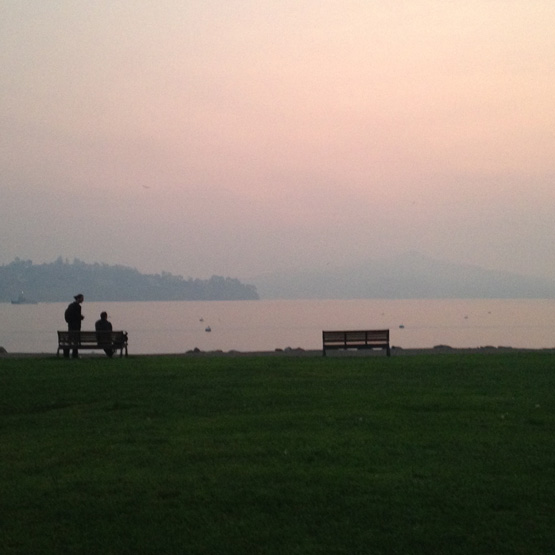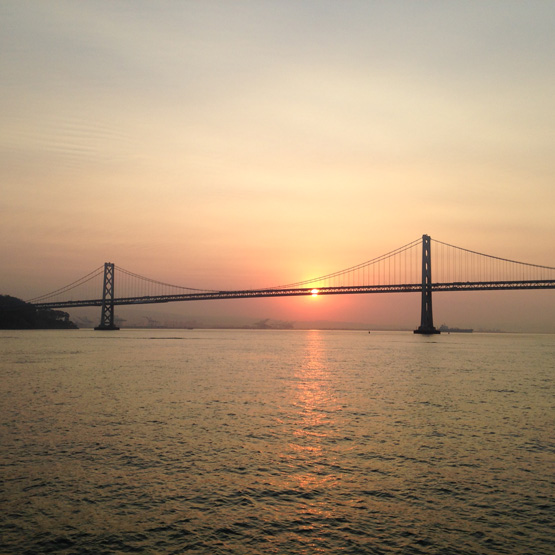Air quality advisories continue through the weekend. As much as we would like to push on, we are postponing the FireMaster Fire Extinguisher and e-Waste Recycling Collection events. Both events will now take place on Sat Oct 28—2 weeks from now.
In the meantime here is some very good information on what you can do: masks that work—and don’t—and how best to remain indoors, given the circumstances. While we don’t need to clear the brush around the perimeter of our houses (as is advised throughout the North Counties) it is a good idea to clear away any clutter or piles of potentially flammable materials. We all live so close to one another that a fire on one boat can quickly spread to another.
Stay Safe. Be Well. Look out for your neighbors.
looking towards Angel Island and out to the Bay Bridge, earlier this week
photos by Jen Gennari | post by Jenny Stein
A Marin county Health & human services, marin county public health advisory:
Facts About Mask Protection—October 13, 2017
Northern California Fires Affecting Marin Air Quality: The fires in Northern California are impacting air quality across the region. The best way to protect yourself from health effects of wildfire smoke is to limit your exposure.
Will a face mask protect me from wild fire smoke?
- The following do not protect your lungs from wildfire smoke:
Bandanas or towels (wet or dry) or tissue held over the mouth and nose: this may relieve dryness but won’t protect your lungs from wildfire smoke
One‐strap paper dust mask or a surgical mask that hooks around your ears: these don’t protect against the fine particles in smoke
- For those who cannot avoid prolonged activities outdoors “Particulate respirator” masks (respirator masks) labeled N95 or N100 may provide some protection: they filter out fine particles but not hazardous gases
- The respirator masks do not seal well on people with facial hair or beards -Individuals with respiratory conditions should consult their doctor before using a mask— masks may limit air flow and make it more difficult to breathe.
- Respirator masks should not be used on young children: they don’t seal well enough to provide protection
What can I do to protect myself?
Limiting exposure to wildfire smoke by remaining indoors is the primary goal. Depending on your situation, a combination of the strategies below may work best and give you the most protection from wildfire smoke:
- Keep indoor air as clean as possible. Keep windows and doors closed.
- Use a high-efficiency particulate air (HEPA) filter to reduce indoor air pollution.
- Avoid smoking tobacco, using wood-burning stoves or fireplaces, burning candles, incenses or vacuuming.
- Minimize the amount of time spent outdoors as much as possible. Avoid vigorous outdoor activities.
- Drink plenty of water
- Listen to your body and contact your healthcare provider or call 911 if you experience difficulty breathing, chest pain, severe fatigue, dizziness, or worsening of asthma or chronic respiratory illness
- For those who wish to use an N-95 mask, these may be available at hardware stores or from online retailers
As always, if you or someone you know is experiencing an emergency, call 9-1-1.
Follow @MarinHHS or MarinHHS.org for updates
For up to date information about fires in California go to: http://www.calfire.ca.gov/
For up to date information about air quality in the Bay Area go to: http://www.baaqmd.gov/

